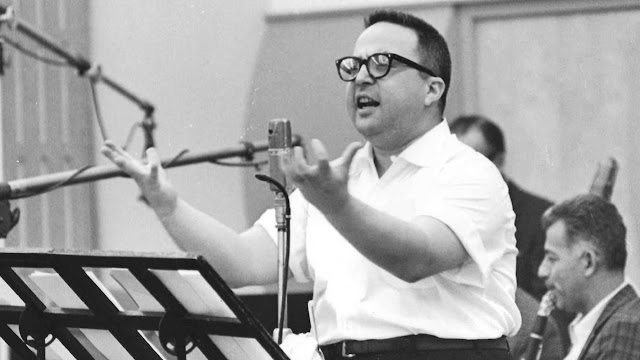by Max Sparber
Country music is not the most Jewish of musics, but neither is it bereft of bereft of Jews. There were a handful of well-known Jewish performers, including Ray Benson, Kinky Friedman, and David Grisman. There have been a larger number of Jewish songwriters, and an even larger number of Jews on the business end of country.
Even still, there are only a handful of country songs that address themselves to Jewish themes, and a vast majority of them are novelty numbers performers by artists who otherwise didn't work in the country milieu. A vast majority of them start from the presumption that there is something inherently comical about Jews in a country setting, especially if that Jew is a cowboy.
This seems a little unfair, as there were Jewish cowboys, and plenty of them, and there is nothing inherently hilarious about, say, Josephine Marcus, daughter of Prussian Jews, who was a teen runaway and adventurer in the Old West who wound up as Wyatt Earp's common-law wife.
Nonetheless, if these songs aren't fair to history, they do manage to be frequently hilarious, the crueler edges of its satire dulled by the fact that it is Jews who are playing with the comic possibilities of Jews in the West, or in folk songs, or in rural settings. What follows are some of the better examples.
“I’m a Yiddish Cowboy,” Edward Meeker (1908)
A Tin Pin Alley novelty number, in Jewish dialect, about a Jew out West who falls in love with an Indian woman.
“Duvid Crockett,” Mickey Katz (1955)
A complete
reimagining of “The Ballad of Davey Crockett” by the king of Jewish
novelty music, Mickey Katz. Here the hero is the king of Delancey Street.” The melody
hews pretty close to the original, but for frequent klezmer breakdown.
“The Streets of Miami,” Allan Sherman (1962)
As was his way, Sherman radical rewrites an existing song, in this case “Streets of Laredo.” In Sherman’s hands, it’s about dueling Jewish businessmen arguing about hotel prices.
“Folk Singer’s Blues,” Shel Silverstein (1962)
Children’s
author Silverstein wrote a few Country classics, including for Johnny
Cash, but here seems to address his own experiences. Over a banjo, he
discusses being an urban Jew wanting to sing rural folk songs.
“The Ballad of Irving,” Bob Booker (1966)
A gunfighter
song, including swelling cowboy chorus, about a Jewish shooter who is
kosher, small, chubby, and the 142nd fastest gun in the West.
“Ride ‘em Jewboy,” Kinky Friedman (1973)
The singer’s most notorious song, at once a genuinely lovely cowboy ballad, but with every line paralleling Holocaust imagery. A nearly endlessly troubling piece of music.
“You Are Never Alone,” Socalled and others (2007)
A mixture of Spaghetti Western theme, Hip Hop, and cantorial music. The song draws close parallels between lonesome cowboys wandering the West and ancient Jews wandering the desert.



Okay this might explain why my dearly deceased Jewish father used to sing the Davey Crockett theme song to me with Yiddish pronunciations.... great article!!
ReplyDelete